Modern seniors are redefining love and commitment by opting for intimate, nontraditional celebrations over lavish ceremonies.
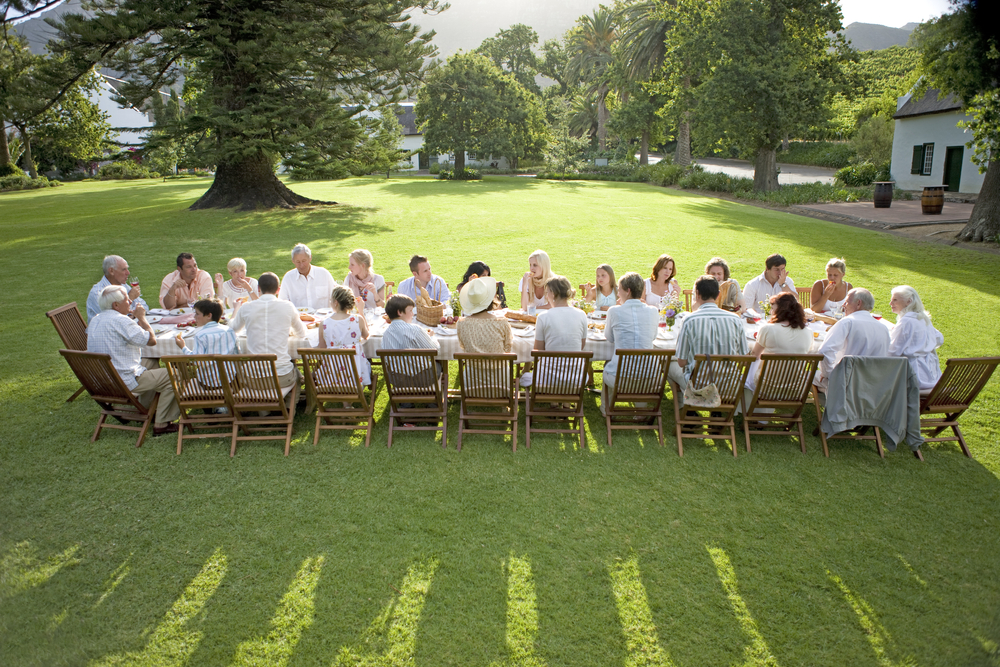
Weddings aren’t just for the young, but many modern seniors are beginning to question the old blueprint for what a wedding should be. Lavish ceremonies packed with guests, strict etiquette, and sky-high expenses no longer feel like the right fit for couples who’ve already experienced much of life. For seniors, love isn’t about making a grand statement—it’s about celebrating a partnership that feels grounded, intentional, and deeply personal.
As the cultural tide shifts, older couples are carving out their own paths to commitment, ones that align with their values, experiences, and desire for authenticity. Whether it’s a private beach ceremony, an elopement in the mountains, or simply saying “I do” in the backyard, these nontraditional weddings are filled with love, meaning, and simplicity. Here are 13 heartfelt reasons why many seniors are choosing to leave the traditional wedding behind.
1. Traditional weddings are too expensive.
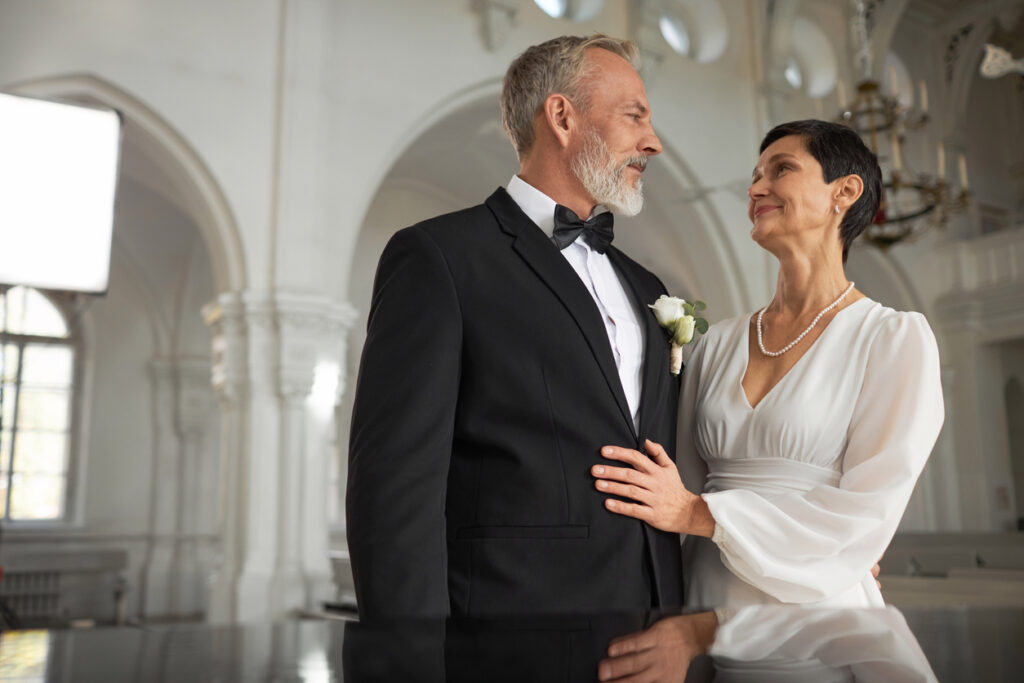
For seniors, financial priorities often look quite different from those of younger couples, as mentioned by Lilly Blomquist at Brides.com. The idea of spending $20,000 to $50,000 on a single event might feel wasteful, especially when retirement, healthcare, or helping out adult children are more pressing concerns. Rather than splurging on floral arrangements and seating charts, seniors tend to ask, “Is this really how I want to use my savings?”
That’s why many opt for minimalist celebrations—courthouse weddings, backyard gatherings, or destination elopements that cost a fraction of the price. This approach doesn’t diminish the importance of the day; it simply redirects the resources toward things that have lasting value, like travel, shared experiences, or building a nest egg for future security. For many seniors, it’s about meaningful choices over material spectacle.
2. Simpler weddings are less stressful.
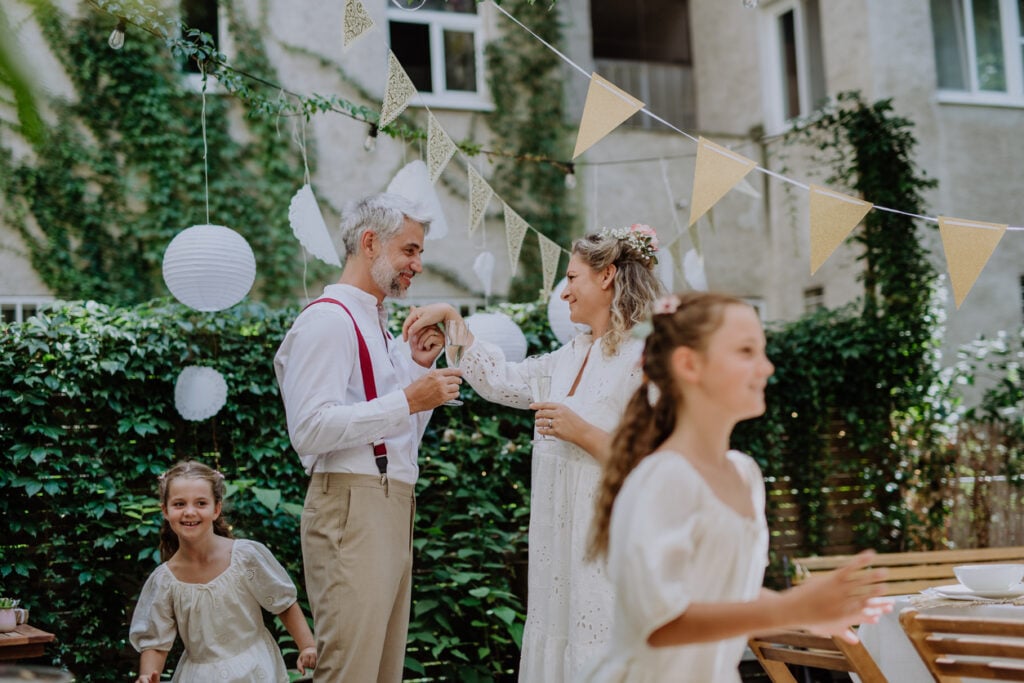
Organizing a large, traditional wedding can become a logistical nightmare—coordinating caterers, venues, outfits, seating charts, and endless details, as stated by Courtney Neidel at Nerd Wallet. For seniors, who may already juggle health appointments, caregiving responsibilities, or other life transitions, the last thing they want is added stress from a sprawling event.
Choosing a simpler celebration means fewer moving parts and more peace of mind. A small wedding lets the couple stay focused on each other without being swept up in managing timelines and guest satisfaction. It shifts the focus from performance to presence, from perfection to genuine joy. And in this season of life, joy without stress is a gift in itself.
3. Intimate ceremonies foster deeper connections.
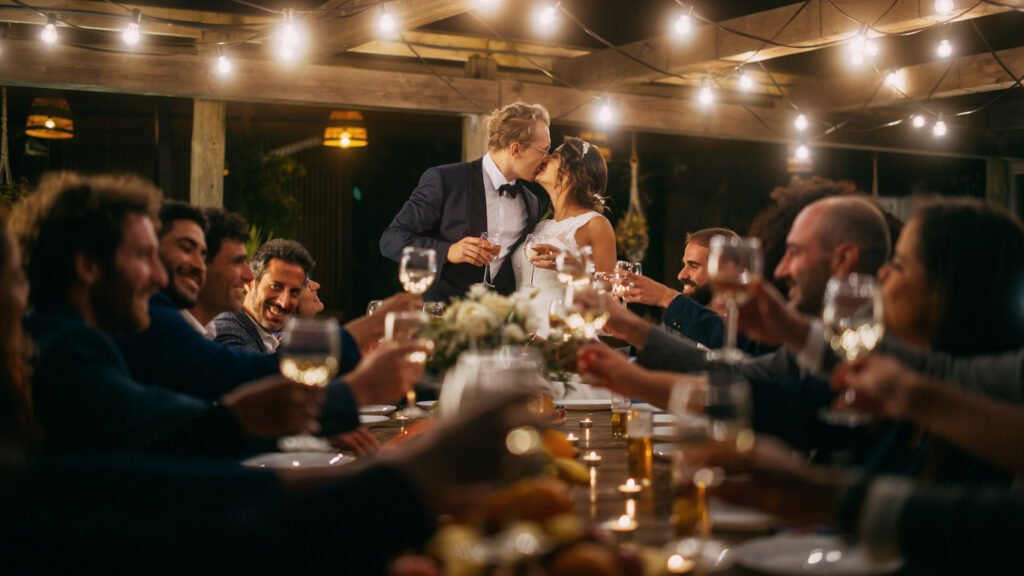
In large weddings, it’s easy for the bride and groom to become hosts instead of participants in their own celebration. They spend much of the event bouncing between guests, never truly settling into moments of connection. Seniors often crave the opposite—a gathering where every face in the room means something, where the intimacy is real and shared.
Smaller weddings open space for heartfelt conversations, personal touches, and the ability to truly savor the moment, as shared by Jessica Estrada at The Knot. Whether it’s a quiet garden ceremony or a candlelit dinner with family, the experience becomes richer because it’s shared with only those who matter most. That kind of depth can’t be found in a ballroom packed with acquaintances.
4. Destination weddings offer adventure and romance.
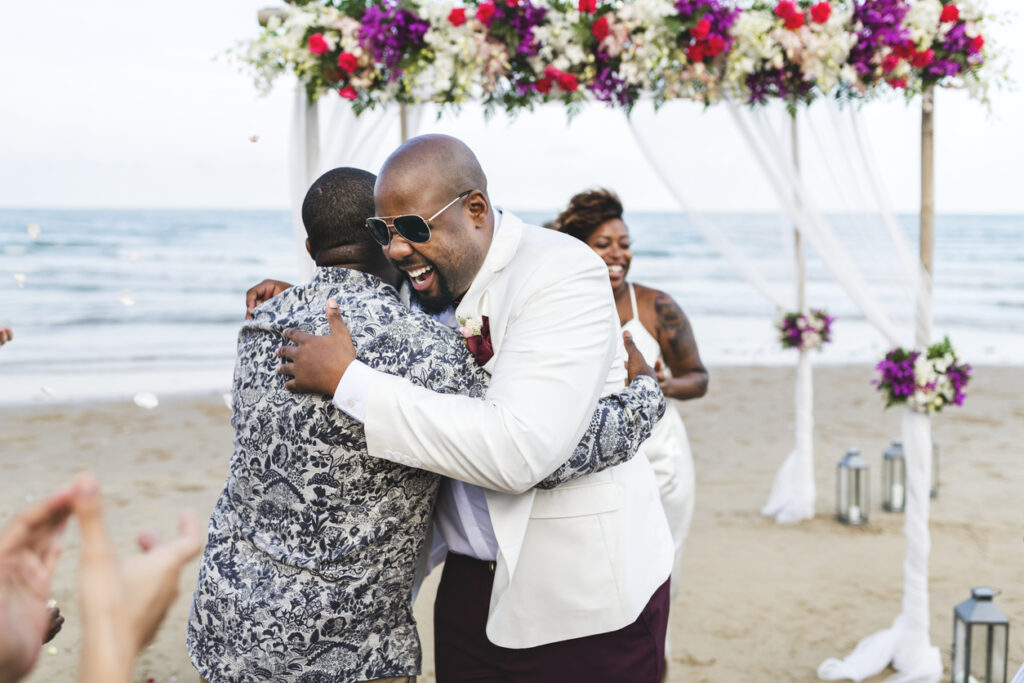
At this stage in life, many seniors want to celebrate love in a way that’s both meaningful and memorable. A destination wedding offers the chance to escape the ordinary and immerse themselves in something beautiful—whether it’s the beaches of Hawaii, a vineyard in Tuscany, or a cozy cabin in the Rockies.
Traveling for a wedding doubles as a honeymoon and a celebration, all rolled into one. Plus, many resorts and venues offer streamlined packages that simplify the planning process. For seniors, this means less time stressing over details and more time soaking up the scenery and the romance. It’s an elegant way to combine celebration with the thrill of discovery.
5. Seniors want to avoid outdated expectations.
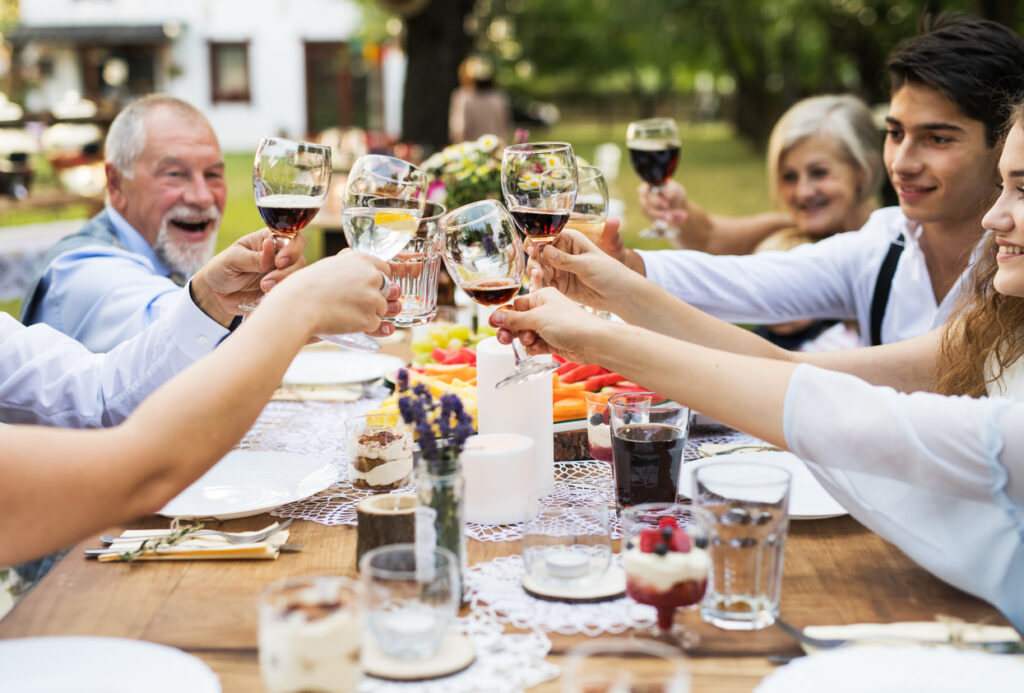
Many older couples have already gone through traditional weddings—or watched loved ones navigate them—and understand how confining those expectations can be. From specific dress codes to elaborate rituals, traditional weddings often emphasize performance over personalization.
Today’s seniors are breaking free of those molds. They’re choosing outfits that feel like “them,” writing their own vows, or ditching traditions that feel hollow. They’ve lived enough to know that what matters is the meaning behind the moment, not whether it conforms to someone else’s rulebook. Their weddings reflect who they are now—not who society expected them to be at 25.
6. Blended families can complicate large weddings.
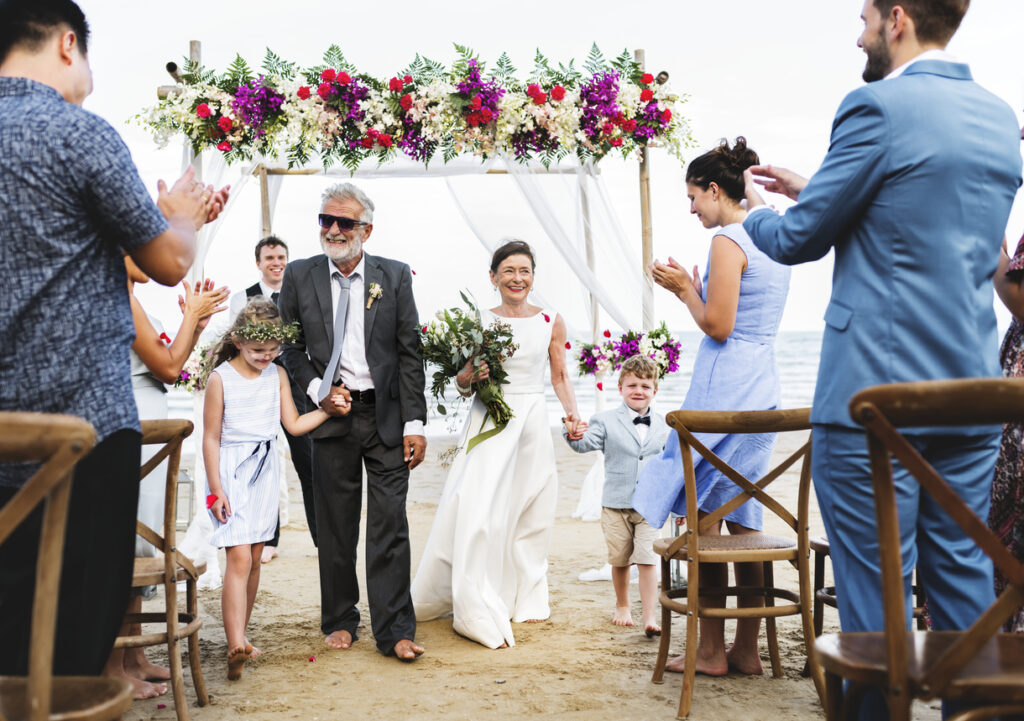
When seniors remarry, they often do so with a complex web of existing relationships—adult children, grandchildren, former spouses, and in-laws. Planning a traditional wedding with a large guest list can raise delicate questions about who should be invited, how people will feel, and whether everyone will get along.
A smaller celebration offers a graceful solution. It keeps the focus on the couple and reduces the likelihood of family friction. With fewer guests and simpler settings, there’s less room for awkwardness and more opportunity for sincere, supportive connection. This approach honors both the relationship and the realities of modern family dynamics.
7. Renewing vows can replace traditional weddings.
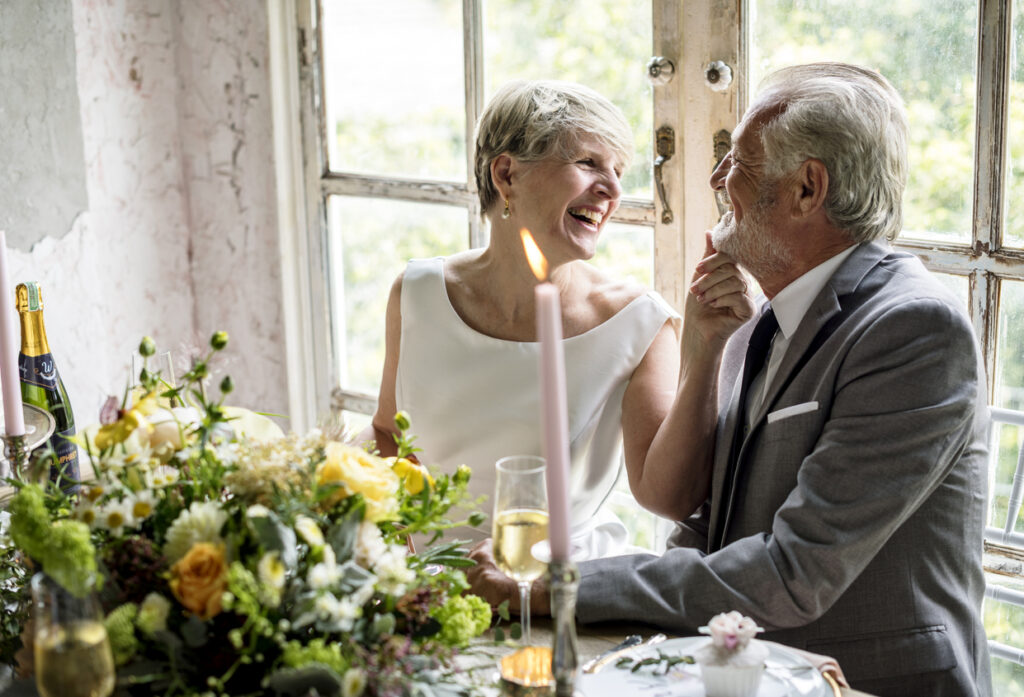
For couples who’ve already been together for decades, the idea of a big wedding might feel unnecessary. But a vow renewal? That’s something altogether different. It’s not about starting fresh—it’s about honoring the journey you’ve taken and reaffirming your commitment in a meaningful way.
Vow renewals can be incredibly personal and touching. They often happen in a cherished location—a family home, a favorite vacation spot, or a quiet lakeside cabin—and are attended by those closest to the couple. The event becomes a testament to enduring love and shared history, rather than a performance for others. It’s a beautiful way to say, “I still choose you.”
8. Courthouse weddings are quick and meaningful.
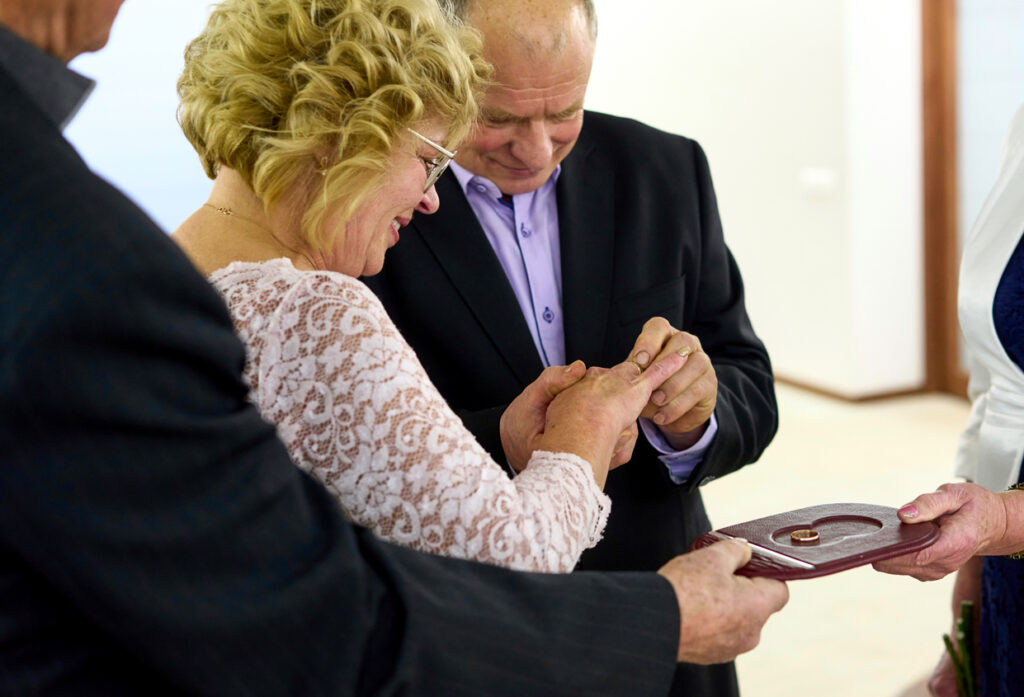
There’s something refreshingly honest about a courthouse wedding. No fanfare, no grand entrances—just two people, their love, and a legal commitment. For many seniors, this simplicity is deeply appealing. They’ve lived enough to understand that it’s the promise that matters, not the packaging.
Courthouse weddings are also flexible, fast, and often deeply intimate. Whether it’s followed by brunch with family or a sunset walk together, the focus remains on the bond between the couple. It’s a practical, heartfelt way to honor love without turning it into a spectacle. And sometimes, less really is more.
9. Seniors prioritize experiences over possessions.
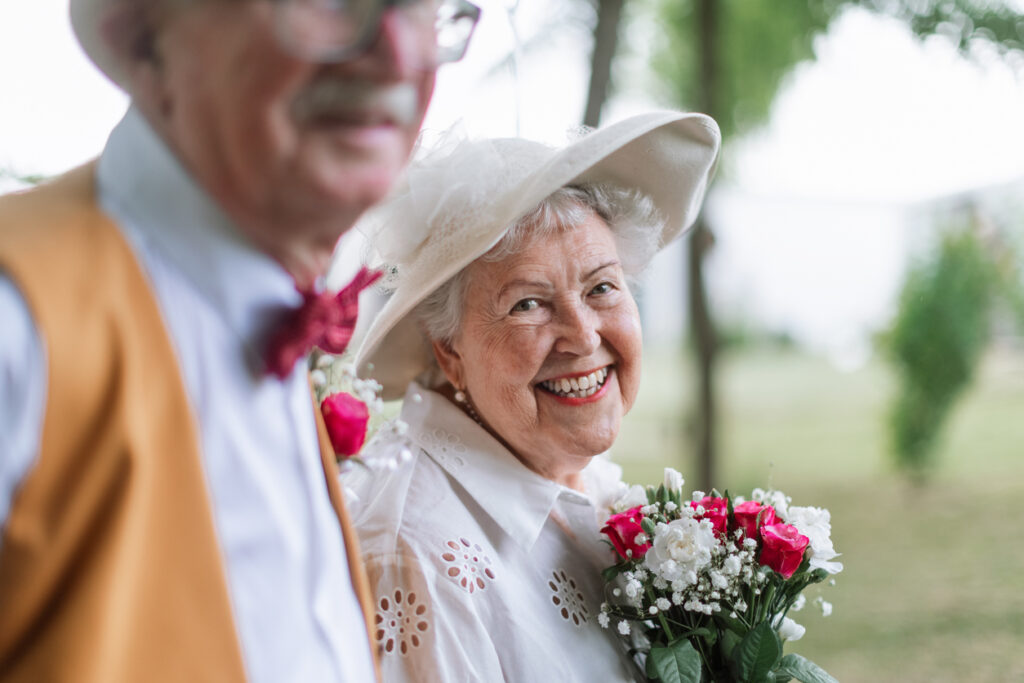
At a time in life when downsizing is more common than upgrading, seniors often focus on collecting memories, not things. The idea of spending tens of thousands on a wedding dress or a lavish reception feels out of step with their values and priorities.
Instead, they may opt for an experience that brings joy and connection—like a trip with loved ones, a meaningful shared activity, or a quiet weekend getaway. These experiences are lasting and life-enriching, unlike the fleeting glamour of a traditional wedding. The shift from material to memorable makes for celebrations that truly resonate.
10. Small weddings can be more eco-friendly.
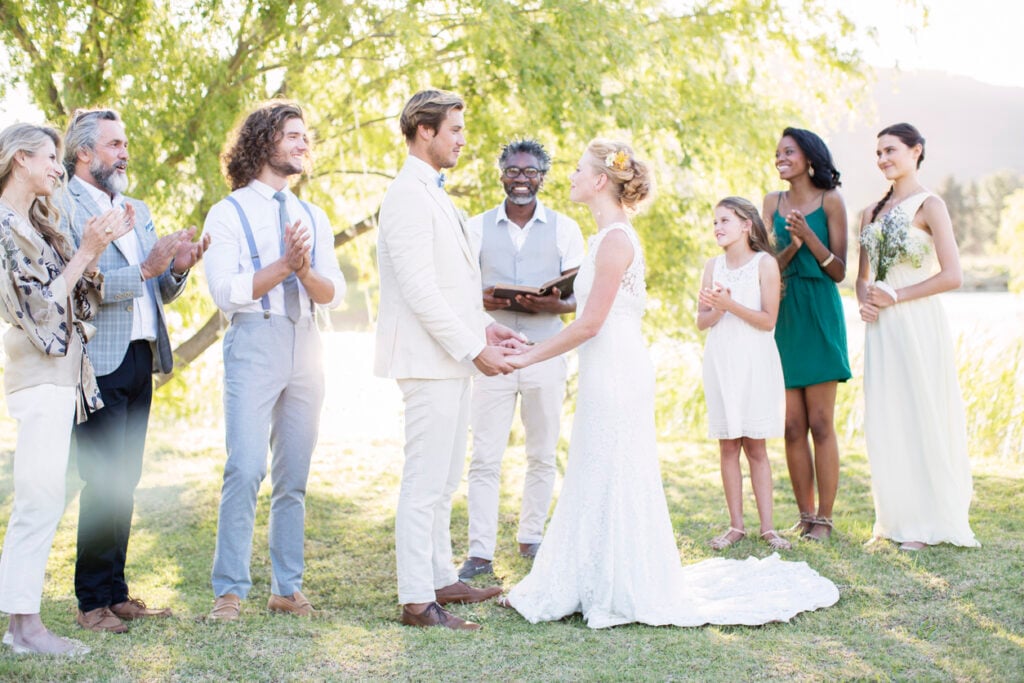
Seniors often have a growing awareness of their impact on the environment and prefer to make choices that reflect that concern. Traditional weddings can be incredibly wasteful, with excess food, throwaway décor, and high energy consumption.
Choosing a smaller celebration makes it easier to go green. From using local and seasonal flowers to cutting back on travel emissions and paper goods, a minimalist wedding can still be magical without leaving a heavy footprint. It’s a way to align one of life’s most meaningful moments with values of sustainability and stewardship.
11. Seniors want to focus on the marriage, not the wedding.
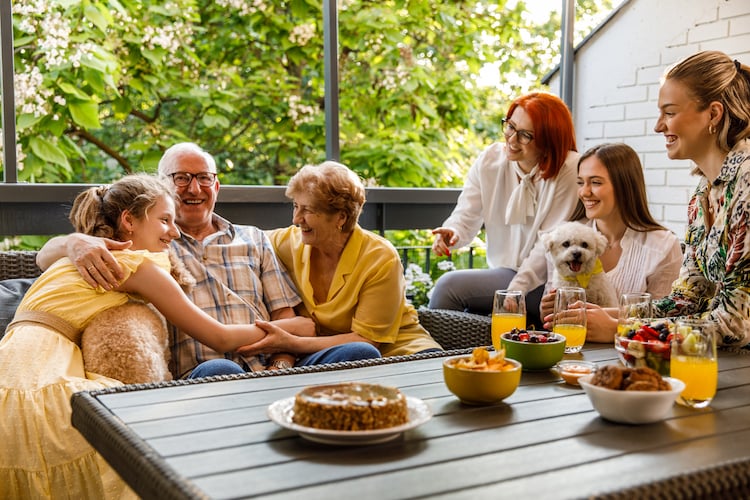
There’s a profound clarity that comes with age—an understanding that the wedding day is just that: a day. What truly matters is the relationship, the commitment, and the shared life that follows. Seniors often seek to pour their energy into the marriage itself, rather than orchestrating a one-time event.
By keeping things simple, they strip away distractions and emphasize what counts most—the bond they’re building or continuing. The result is a celebration grounded in truth and intention. It’s about real partnership, not pretty pictures. And that mindset sets the tone for a marriage that’s built to last.
12. Health considerations make traditional weddings challenging.

As we age, health becomes a bigger factor in how we experience big events. Long ceremonies, loud receptions, or distant travel can become difficult for some seniors or their loved ones. What sounds glamorous in theory might feel exhausting in reality.
Choosing a wedding format that accounts for physical comfort and accessibility isn’t about settling—it’s about creating joy without discomfort. Whether it’s a short ceremony, a relaxed venue close to home, or a midday event that’s easy on everyone, the emphasis is on care and consideration. That makes the celebration more inclusive and genuinely joyful.
13. Modern seniors love breaking the rules.

Today’s seniors are rewriting the script on how to age, love, and celebrate. They’re hiking mountains, starting businesses, dating online—and yes, having unconventional weddings that reflect who they really are. They aren’t afraid to question traditions or redefine them entirely.
This creative freedom leads to truly unique wedding experiences. Maybe it’s a surprise ceremony during a backyard barbecue, or a potluck dinner with a few close friends. The point isn’t to impress anyone—it’s to celebrate love authentically. Seniors are proving that romance doesn’t fade with age; it just gets more fearless, more genuine, and more fun.
